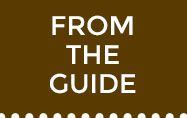

Just a few years after settling into our first spiritual home, the Zen Center in Mountain View, we knew we wanted to find a place in the country to retreat. (The “we” was the small group of people who had scraped together the $9K as down payment to purchase that original building.) Our criteria for the land we were seeking was 1) not more than three hours from the Bay Area, and 2) good, easily accessible roads. Before long it became apparent that Calaveras County filled the bill. I searched the length and breadth of the county before I realized the realtor assisting us could not believe I actually wanted a large property. She thought ten, maybe fifteen acres was probably way bigger than I thought, and would surely be plenty. When I came to her with a listing for 320 acres she clearly thought me completely misguided, but away we went anyway. The gate, where the gate is today, was locked, as it is today, so we had to walk down from the gate to explore the nothing the land contained. Just fields and trees in every direction. When we came to the open space where the buildings now rest, I knew this was home. Walking around I could “see/feel” monks practicing there, sensed the people who would be visiting, training. It was a long process to find that place and the reward for patience was landing in heaven.
When we watched the film “Kiss the Ground” recently, much coalesced for us. We had always loved those 320 acres like a child, but with the pandemic and climate change it had become apparent that we simply could no longer steward the land in the way it needs, and we knew it was time to hand it over to the next people who would love and care for it. The movie showed us that everything we want to do—for the earth, as Awareness Practice—could happen, but it needed to happen somewhere else. But where?
From the moment, a few years ago, that I heard about Sunny Sequim, Washington, referred to as a “Banana Belt,” I was fascinated. What does that mean? What does that look like? It wasn’t until “Kiss the Ground” and our realization that we needed to let go where we’d been for so long to be open to “what now,” that it dawned. Ah ha! Might that Banana Belt be our new home?
For me it was love at first sight. Charming little town on one end of the street, stores that can provide everything ever needed at the other end. Breath-taking mountains, trees in every direction, water! Water! There’s water everywhere! But wait. I need to tell you that I was very wrong in my conclusions about how much water. I thought Sequim has about the same rainfall each year as Murphys, but it doesn’t. It has the same rainfall as Los Angeles, whereas Calaveras County has 2-3 times as much. The difference, which is enormously significant, is that Sequim gets that water throughout the year, whereas in Murphys we tend to get it in about two months and the rest of the year is dry. (There’s more water news that I’ll relate as we talk about our projects here and how we plan to go forward.)
I realize some folks have all this information, but there are others who have missed the history, so please bear with me. As I sit typing this I’m looking out at the two mountains that dominate our view. The “farm” is 25 acres, bordered on one side by a road that ends about ½ mile past the house, on the opposite side by Natural Resources Department land, and on the other two sides by large properties owned by mostly invisible neighbors. I promise I won’t send pictures of the mountains every day, though I do take them! As mentioned, I’m in love and that sort of thing tends to happen to us when we’re in love. I’ve also included some pictures from the Olympic Discovery Trail, which goes from Port Townsend to the Pacific Ocean. The whole thing is closed to vehicles, wonderfully quiet and, yes, gorgeous. And, of course, the Strait of Juan de Fuca at the edge of which this little bit of paradise rests.
From our arrival here we’ve met wonderful people. Lissa, who has a native plants nursery. Christian, who will assist us to reclaim these 25 acres—more about that soon. Mike, a handyguy par excellence who has saved me from the many disasters lurking just under the surface in a house that seemed perfectly fine. Wes, who fixed and explained the water—it’s a long list. Then there’s the marvelous local grocery, the farm coop, the recycle wonderland where I was able to purchase all the tools needed to get started here before the Monastery arrives. The county is supportive of tiny houses and composting toilets—oh my! Going forward I hope not to be quite so loquacious, though if you know me at all you know I may not be able to fulfill that hope.

